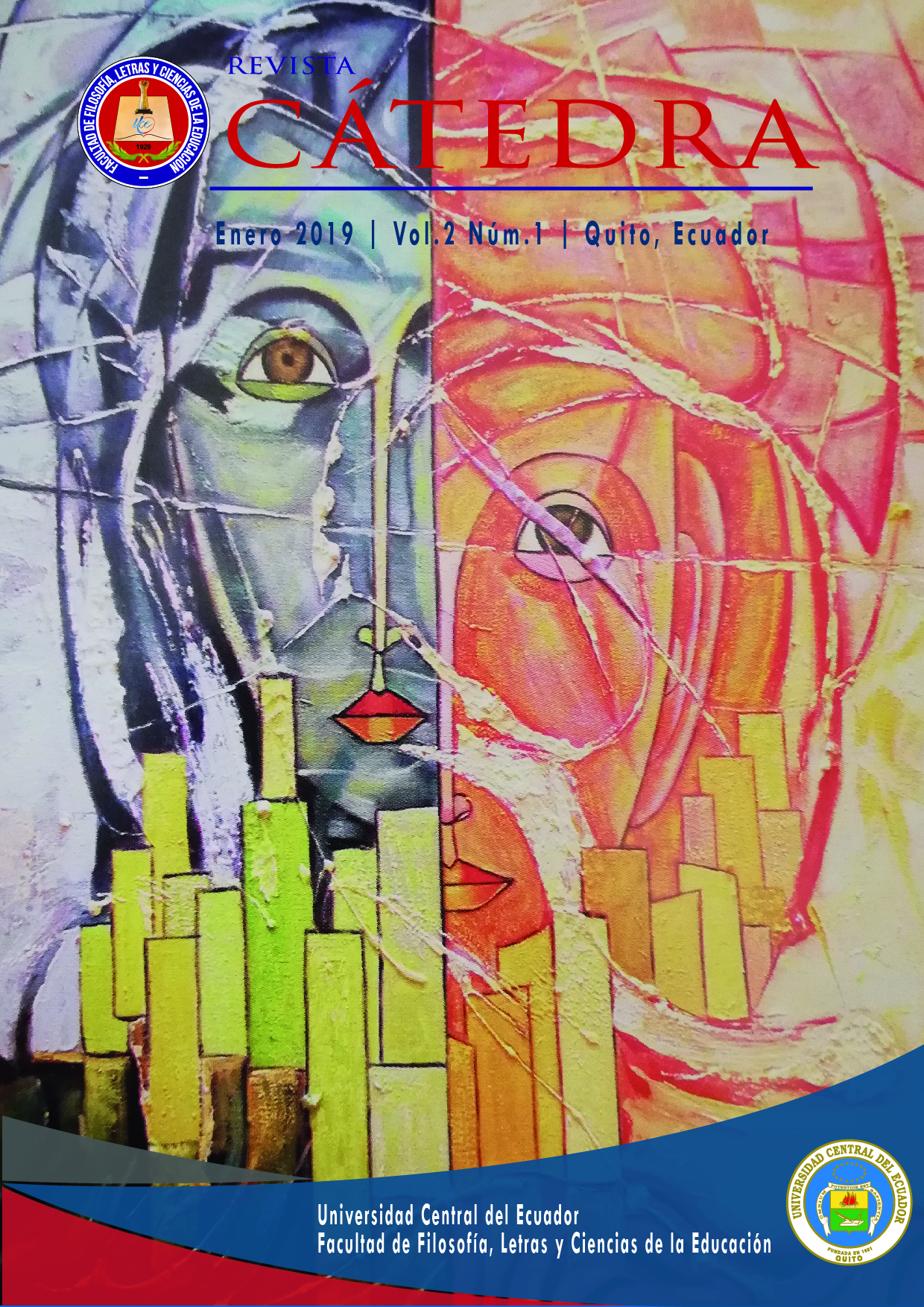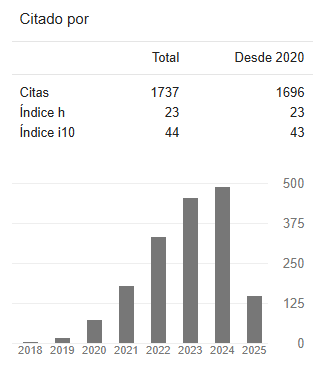Relation between academic performance and attendance as factors of student promotion
DOI:
https://doi.org/10.29166/catedra.v2i1.1552Keywords:
Approval, attendance, grades, averages, promotion, student academic performance, disapprovalAbstract
Thisarticle shows the correspondence between academic performance and attendance as factors of success of the students studying atthe Faculty of Philosophy and Education Sciences (FFLCE) of Universidad Central del Ecuador(UCE), from documentary information of the institutional files registered by the Computer Services Unit of the Faculty of Philosophy (USIF) in the academic period 2016 -2017, speciallythe qualifications component of all the levels (semesters), considered the grade-point averages of the subjects about current careers for the degree, approved by the Council of Higher Education(CES), in which 3617 students are enrolled. The grade-point averages and attendance were calculated through a statistical analysis with the use of the correlation coefficient, and a 0.75 was obtained. This means that there is a moderate positive correlation, and directly proportional. Academic performance and attendance by gender (men -women)does not show significant difference, which means that they have similar qualifications and attendtoclasses equally.
Downloads
References
Arribas, J. M. (2014). Valoración del rendimiento académico de los alumnos de la Facultad de Educación de la UVA (Segovia) en el primer año de implantación de grado. Revista de Educación a Distancia, 1(43), 1-22
Carretero, M. (2009). Constructivismo y Educación. Buenos Aires, Argentina: Paidos
Consejo de Educación Superior. (2016). Reglamento del Sistema de Evaluación Estudiantil Obtenido de http://www.uleam.edu.ec/wp-content/uploads/2016/10/
Consejo de Educación Superior. (2017). Reglamento de Régimen Académico. Quito: CES.
Garbanzo, G. M. (2007). Factores asociados al rendimiento académico en estudiantes universitarios, una reflexión desde la calidad de la educación superior pública. Revista Educación. 31(1), 43-63
Murillo, E. (2013). Factores que inciden en el rendimiento académico de matemáticas. San Pedro Sula: Universidad Pedagógica de Honduras.
Revista Electrónica Iberoamericana sobre Calidad, Eficacia y Cambio en Educación, 1(2), 1-13
Rodríguez, N. (2016). Lineamientos para evaluacion estudiantil de grado. Quito: UCE.
Rodríguez, N. (2017). Lineamientos para la Evaluación Estudiantil de Grado. Quito: UCE Obtenido de https://bit.ly/2xFF6gu
Salvador L (sf). Estadística Elemental. Obtenido de http://personales.unican.es/salvadol/apuntes2b.pdf
Suárez, A. (2011). http://organizandoelcentroeducativo.blogspot.com. Obtenido de https://bit.ly/2xBIda1
Universidad Central del Ecuador. (2016). Estatuto Universitario. Quitio: Universitaria UCE.
Universidad Central del Ecuador. (2017). Instructivo para la Evaluación Estudiantil de Grado. Quito: UCE.
Universidad de las Palmas Gran Canaria. (2011). Definición de asistencia regular y circunstancias objetivas de justificación de ausencia de clase. Obtenido de https://bit.ly/2MXVi26
Universidad de Loyola Andalucía. (s.f., portada). La importancia de la asistencia a clases. obtenido de https://www.etea.com/web/as00510/asistencia_seccion
Downloads
Published
Versions
- 2020-09-03 (2)
- 2019-01-30 (1)









